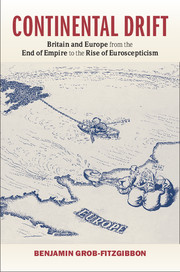Introduction
Published online by Cambridge University Press: 05 May 2016
Summary
On the afternoon of 7 May 1948, Winston Churchill addressed the 750 delegates at the first Congress of Europe. ‘This is not a movement of parties but a movement of peoples’, he declared. ‘If there is rivalry of parties, let it be to see which one will distinguish itself the most for the common cause’. Everyone had been invited to the Congress ‘in his individual capacity, nevertheless this Congress, and any conclusions it may reach, may fairly claim to be the voice of Europe’. Its delegates included ‘statesmen of all political parties, leading figures from all the Churches, eminent writers, leaders of the professions, lawyers, chiefs of industry and prominent trades-unionists’. Their common cause was a united Europe. Churchill, their Honorary President, implored them to ‘pull together and pool the luck and the comradeship’. If they did so, then all of Europe might ‘move into a happier sunlit age’.
Churchill was speaking in the Hague not as the leader of the Conservative Party and His Majesty's Loyal Opposition, nor as a former British Prime Minister, but as a citizen of Europe. The British delegation that he led included the Liberal Peers Lord Layton and Lady Violet Bonham-Carter; the trade unionist Bob Edwards and Labour MPs Kenneth Lindsay and Leslie Hale; and the Conservatives Leopold Amery, Robert Boothby, Lady Rhys-Williams and Henry Hopkinson. These Britons were joined by other European dignitaries such as Léon Blum, Jean Monnet, Paul Reynaud, Konrad Adenauer, Paul-Henri Spaak and Paul van Zeeland, names that would soon become synonymous with the cause of European unity. Even the Vatican sent a representative. With British cross-party support and delegations from fifteen other European countries, the Congress adopted a political program that committed its delegates to work towards a ‘parallel policy of closer political union’, which would ‘sooner or later’ involve ‘the renunciation or, to be more accurate, the joint exercise of certain sovereign powers’. In the economic sphere, it agreed that ‘The nations of Europe can only be saved by a complete economic union, providing a single market for labour, production and trade’. Finally, the Congress declared that ‘No scheme for European Union would have any practical value without the effective participation of Great Britain. The United Kingdom is an integral part of Europe’. A future European Union would be both politically and economically integrated with Great Britain at its heart.
- Type
- Chapter
- Information
- Continental DriftBritain and Europe from the End of Empire to the Rise of Euroscepticism, pp. 1 - 10Publisher: Cambridge University PressPrint publication year: 2016



